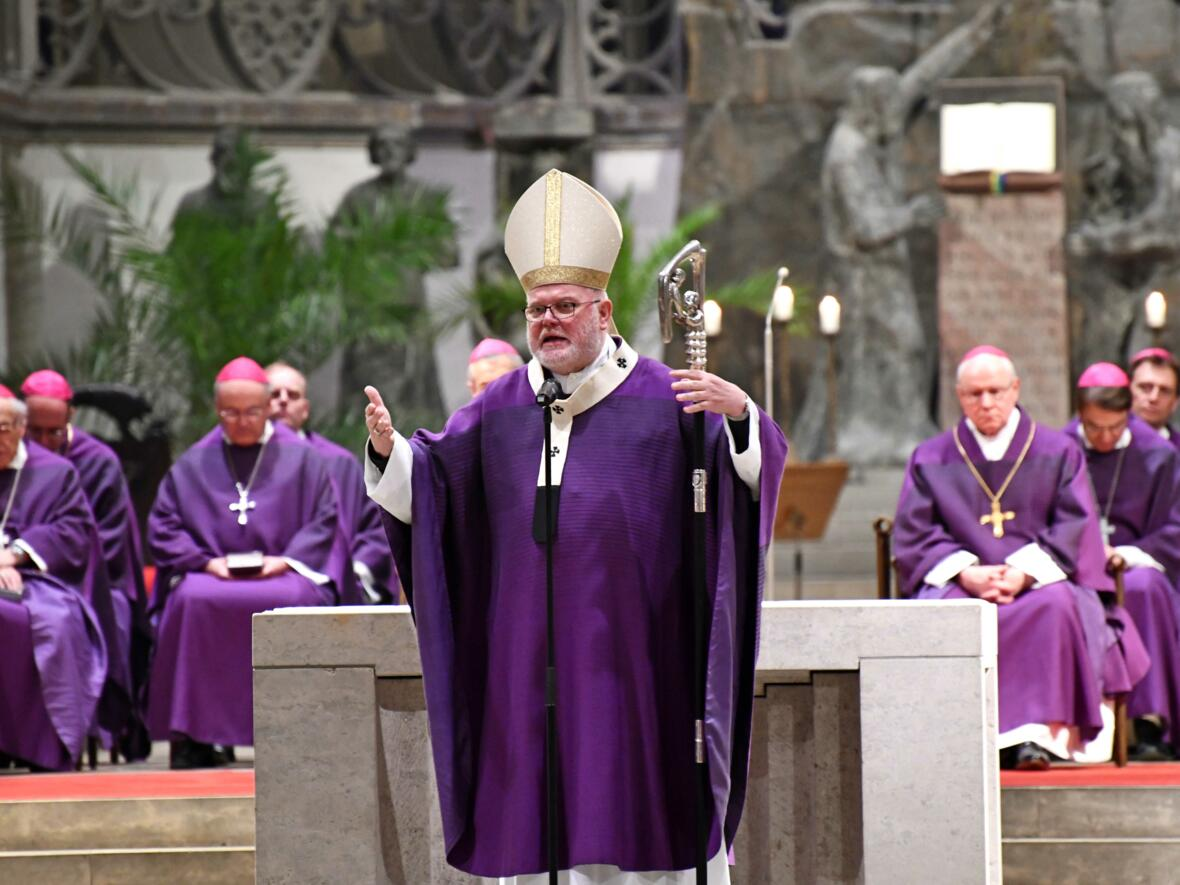Bavaria's bishops want action about right wing tendencies within the Church
Bavaria's bishops are examining right-wing tendencies in the Catholic Church.
The Competence Centre for Democracy and Human Dignity (KDM) pays attention "to the actions of the radical right in church circles," it said on Thursday in a statement at the end of the spring plenary assembly of the Freising Bishops' Conference in the Münsterschwarzach Abbey in the Lower Franconian district of Kitzingen. The conference "The Catholic Church and the Radical Right – a Necessary Debate" was given as an example.
"During the discussion about the work of the KDM, the bishops made it clear that, in addition to right-wing extremism, anti-Semitism, Islamism and left-wing extremism continue to pose threats."
According to the statement, the Bishops also exchanged views on the situation in the around 300 Church and Caritas schools with around 90,000 students in the Free State.
The seven Bavarian archdioceses and dioceses of Bamberg, Munich and Freising, Augsburg, Eichstätt, Passau, Regensburg and Würzburg as well as the diocese of Speyer are represented in the Freising Bishops' Conference.
The KDM held a conference in October 2022
From October 13th to 14th, 2022, the competence center for democracy and human dignity of the Catholic Church in Bavaria, with its two locations Domberg-Akademie and Akademie CPH, invited to a conference in Nuremberg on the topic "The Catholic Church and the radical right - a necessary debate". .
Two experts on this topic, Dr Liane Bednarz and Dr Sonja Strube, emphasized different interfaces of the phenomenon area "Catholic Church and radical right" in their keynotes. Together with the Archbishop of Bamberg, Professor Dr Ludwig Schick and the BDKJ national chairman Gregor Podschun, (Cathcon: an Arch-Synodaliarch) they then discussed with the participants gaps in the research field, connections between church structures and the phenomena area as well as possible and necessary actions at various levels.
"System relevant? System-breaking?” In the evening, Matthias Drobinski, editor-in-chief of the magazine Publik-Forum, addressed the question of whether the church is still needed in a secular society in the 21st century and what role it could or should play.
After a morning impulse from Claudio Ettl, the conference participants delved into workshops on the morning of the second day on analyzes and options for action in the field of education (Andreas Menne) and from a church-legal perspective (Doctor Michaela Hermes and Caroline Gmehling). In a final fishbowl discussion, all participants brought the results together and identified starting points for further work. The "outside perspectives" from a Protestant and civil society point of view, which were introduced by the relevant participants at the end of the conference, were also very helpful here.
In the discussions after the lectures, during the workshops, but also in many conversations on the fringes of the conference, it became clear that in all areas of the church we are confronted with challenges from reactionary and misanthropic positions. And we have to face this. This requires know-how, networking, mutual solidarity and support and a constructive culture of discussion about society, faith and the church. At the end of the conference, all participants were motivated to do this. The employees in KDM also want to continue to fulfill their task in this regard and use the knowledge gained and new networks.
Competence Centre for Democracy and Human Dignity of the Catholic Church of Bavaria sees itself as a link between Catholic institutions and structures in Bavaria. It resolutely opposes right-wing extremist, racist and inhuman tendencies through educational, advisory and networking work and strengthens people and institutions in this debate.










.jpeg)

Comments